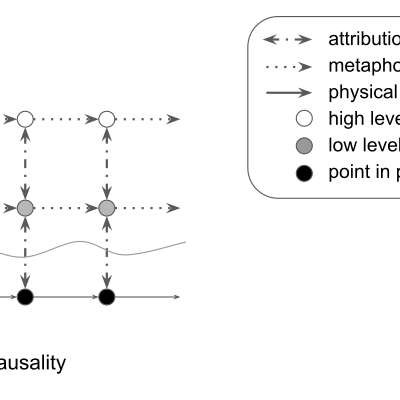
Henry Bigelow
@hrbigelow
Followers
105
Following
3K
Media
10
Statuses
94
Computational Biologist, Machine Learning Engineer and Researcher @AsteraInstitute. Formerly at Amgen and Broad Institute
San Francisco, CA
Joined October 2014
One unexpected and rewarding side effect of studying ML is that it forces one to scrutinize how human intelligence works. This is one of these moments.
OpenAI's reasoning system just scored at the gold-medal level at this year's IOI online competition — ranking #6 when measured against human competitors and #1 among all AI submissions. With @SherylHsu02 @alexwei_
@bminaiev
@ahelkky My personal notes: https://t.co/yZQWQIPbXz
0
0
2
Vector-quantization is taking over! @BytedanceTalk @keyutian @pess_r @robrombach @OriolVinyalsML @koraykv The details of VQ methods are highlighted, including the VAR @NeurIPSConf paper of the year. check out the following PDF
drive.google.com
0
3
13
Just took this very brief (one minute) personality test. Reading the analysis was strange and also spooky - like watching someone solve a rubiks cube of my emotional make-up. Take the Eristics Test
eristicstest.com
The Eristics Test evaluates you how you process the emotional arguments of love, fear and guilt.
0
0
4
This podcast is well worth checking out, even if, *especially if* advanced mathematics terrifies you a little bit. (It does for me) Seeing expert mathematicians reason through their intuitions in real time is an encouraging experience.
Consider having your pi today at The Cartesian Cafe, my podcast that's been ranked top 5 for math in the US. Watch in-depth whiteboard sessions with mathematicians, physicists, and AI experts - from Fields Medal winning work to quantum computing. https://t.co/P4OGynLhUk
#math
1
1
8
Another tidbit from the upcoming Variational Book. This property of the composability of Gaussian noise is a key part of what makes Diffusion models work efficiently.
Is the art of transforming text into images or videos something that sparks your curiosity? @DavidDuvenaud @DrJimFan @WenhuChen @_tim_brooks @kchonycthe @sleepinyourhat essence of diffusion model construction by understanding step-wise deformation
0
0
3
One thing that wasn't apparent to me at first - Diffusion models are VAEs with a special structure (fixed encoder, learnable decoder) - so if you're interested in Diffusion models, this book may be of interest.
Have time for diffusion? @jaschasd @sama @gdb @omarsar0 @Thom_Wolf @tunguz @DataJunkie We give a brief rundown of what sets these methods apart.
1
0
2
For those interested in the mysterious and challenging topic of variational inference, central to modern machine learning. I am looking forward to reading when it is released.
what are some of the best ways you learn?? @kaifulee @AndrewYNg @drfeifei @KirkDBorne @rasbt @kdnuggets @Datasciencectrl @AssemblyAI @TeachTheMachine The Variational Book dives into the details. Let's quickly compare the latent space between NFs and VAE #AI #GenerativeAI
0
2
3
I implemented and trained the transformer https://t.co/lOexw3gbW6
#AIAYN in Jax/Haiku on Cloud TPU. Includes beam search, incremental inference with kv-cache, packed sentence pair dataset, Blog entry here, comments welcome. https://t.co/KRrWqqIj3x
1
0
3
Fans of epistemology in machine learning: my recent #lesswrong post grappling with notions of truth, causality and interpretability of representations: https://t.co/3G0W8P1U35
lesswrong.com
Introduction In this note, I argue that the interpretation of representations (mental or machine learning) as causes of observed effects, is wrong by…
0
0
1
"Gas the jews" chants in Sydney, Australia. Similar demonstrations are seen all over the world including in NYC, Chicago, Atlanta, Paris, and more. Universities and institutions everywhere should speak out against such hate. This transcends politics.
Video: A crowd at the steps of the Sydney Opera House chants "gas the Jews" and "f*ck the Jews" on October 9.
6
2
26
My quick thoughts on @peterboghossian’s recent livestream with @drbriankeating on “Trust Science, Not Scientists”: I appreciate Brian’s (indirect) praise of my podcast and Peter’s genuine curiosity to understand physics. Hoping they'll take to heart some shortcomings I saw: 1/
1
1
12
An enthralling short discussion of how cosmologists use multiple scale density fluctuations across the Universe to deduce the nature of its origins.
Want to win a Nobel prize? Eager to hear a scientist’s story of how that didn’t happen? Ethan Siegel (@startswithabang) and I discuss the science and drama behind the Icarian journey of Losing the Nobel Prize by @DrBrianKeating. A brief overview (1/n):
0
0
0
ML researchers: just listened to this podcast episode from start to finish, all of it engaging, presenting clear mathematical foundations of machine learning and how to analyze larger and larger models and their training trajectories. A beautiful unification of ideas at the end.
Have you been awaiting a mathematically rigorous theory of large neural networks? Then join me and @TheGregYang on his incredible Tensor Programs work, which both realizes such a theory and provides concrete experimental guidance to machine learning (1/n):
0
0
1
Python Customized Tracebacks: see tensor shapes, dtypes in a traceback without a debugger https://t.co/UMf9oNDTKz
#TensorFlow #PyTorch
If @PyTorch was printing the sizes, dtype and devices of all the tensors involved in an operation that failed, we would be getting AGI ten years earlier.
0
1
4
Excited to see many awesome community members in person at #PyTorchConference tomorrow! Some major announcements are coming too…
0
3
17
Tired of overblown quantum hype? Ready to learn the truth about quantum computing? Then pull up a chair at The Cartesian Cafe to get a masterclass from Scott Aaronson and some quantum straight talk: https://t.co/pnj53m3eYJ Trailer video (1/n):
3
17
83
Theories of Everything: You know of my refutation of @EricRWeinstein + @DrBrianKeating's Geometric Unity. Others know of Scott Aaronson's refutation of @stephen_wolfram. At long last, Scott and I sit down for a nice conversation: https://t.co/nsFFqafars The trailer clip: (1/n)
4
10
63
This tutorial motivates the Kernel Method as the optimal model within a family of models. You can manipulate the functions and their norm, in solution space and feature space. Focuses on essential kernel idea using the simplest method, kernel regression, as worked example.
0
1
1
This tutorial motivates the Kernel Method as the optimal model within a family of models. You can manipulate the functions and their norm, in solution space and feature space. Focuses on essential kernel idea using the simplest method, kernel regression, as worked example.
0
1
1








